I am delighted to welcome you to BEEF 2022, a major beef open day taking place at Teagasc Grange on Tuesday 5 July. Beef farming is the most widespread of all farm enterprises with almost 100,000 farms having a beef enterprise. Therefore, the sector makes a key contribution to the Irish economy, particularly in rural areas.
In keeping with the size and importance of the sector, Teagasc commits significant resources to our beef programme in our research, advisory and education departments. From a research perspective, in addition to our 250ha flagship site at Grange, which you will have the opportunity to visit on 5 July, our research site at Johnstown Castle is investigating multispecies swards for a dairy calf-to-beef enterprise.
We continue to develop our beef programme and have added to our research team in the past 12 months. We hope to further build our beef research capacity in the coming months and will have announcements forthcoming in that regard.
At our BEEF 2022 open day you will also have an opportunity to meet some of the farmers and the advisory team from our two new demonstration programmes – the Future Beef Programme focused on suckler beef and the DairyBeef 500 Campaign.
These will involve widespread advisory activity for suckler and dairy-beef systems, including a network of demonstration farms spread throughout the country. Each programme will leverage our discussion group model and will aim to promote profit-enhancing technologies relevant to farms throughout the country. There will be an intensive dissemination campaign so I am sure you will hear much more from these programmes in the coming years.
Sustainable beef farming
The theme of our event is ‘Supporting Sustainable Beef Farming’. Sustainable farming is, first and foremost, economically viable farming. Improving farm viability is the overarching objective of our beef programme.
The Teagasc National Farm Survey figures for 2021 show large percentage increases in beef farm incomes, albeit from a low base. Incomes on “cattle rearing” farms increased by 29.7% to €10,937, while incomes on “cattle other” farms increased by 5.7% to €16,416.
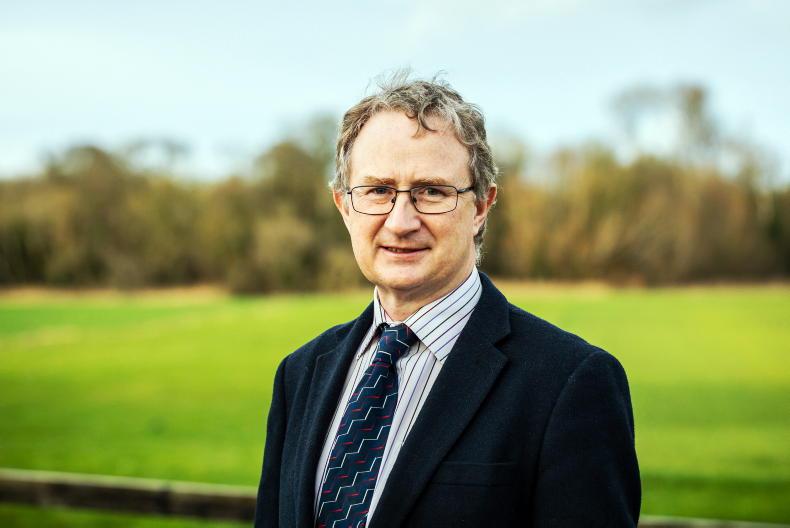
Teagasc director Frank O’Mara. \ Philip Doyle
Although the increases were welcome, the overall incomes are still very low. The increases in input costs which were emerging towards the end of 2021, have accelerated in 2022.
It remains to be seen if these large input cost increases will be sufficiently covered by the significantly increased beef prices currently being received by farmers.
Farm supports
The analysis from the Teagasc Rural Economy team highlights that farm supports, particularly for suckler farms, are vitally important for family farm income on beef farms. The rapid escalation in both input and beef prices in the past 12 months raises many questions as to what this means for our “blueprint” system and for farm incomes in Ireland, and these issues will be extensively discussed at the open day.
Of course, sustainability also means continuing to reduce the environmental footprint of our beef farms. With our pasture-based production systems, we have a very strong starting point with regard to the environmental sustainability of our beef farms. Our research continues to harness the potential of grazed pasture for our beef farm systems.
At BEEF 2022 we have signalled the prominence of the environmental aspects of the beef programme by locating our ‘Signpost Farms’ Environment village, as the first of our technology villages.
The Signpost Farms Programme incorporates our enterprise-level programmes such as Future Beef, DairyBeef 500 and Grass10 under its umbrella.
This signals our determination that management measures recommended to farmers are firstly those which either increase productivity, or reduce production costs on our suckler, dairy-beef and finishing farms.
We are confident that there are enormous environmental gains to be achieved by improving efficiency of beef farms.
Indeed, the first stand at the BEEF 2022 open day will show that the most efficient farms are the most profitable and produce beef with a low carbon footprint. Our research programme is also seeking to develop the ‘next generation’ of technical solutions to further reduce the environmental footprint of beef.
In particular, we have invested heavily in research to mitigate methane emissions from beef cattle, which predominantly emanate from rumen digestion.
The early results from this research are very promising and you will have an opportunity to see these and meet the researchers involved first-hand in Grange on Tuesday 5 July.
So all in all, there are many important and interesting topics for beef farmers that will be discussed at the open day, and I hope to meet you there and that you find the day enjoyable, informative and fulfilling.
Read more
BEEF 2022: the main stands previewed
Teagasc BEEF 2022: What's on in the BEEF 2022 villages
Teagasc BEEF 2022: a forum to discuss key challenges facing the beef sector
I am delighted to welcome you to BEEF 2022, a major beef open day taking place at Teagasc Grange on Tuesday 5 July. Beef farming is the most widespread of all farm enterprises with almost 100,000 farms having a beef enterprise. Therefore, the sector makes a key contribution to the Irish economy, particularly in rural areas.
In keeping with the size and importance of the sector, Teagasc commits significant resources to our beef programme in our research, advisory and education departments. From a research perspective, in addition to our 250ha flagship site at Grange, which you will have the opportunity to visit on 5 July, our research site at Johnstown Castle is investigating multispecies swards for a dairy calf-to-beef enterprise.
We continue to develop our beef programme and have added to our research team in the past 12 months. We hope to further build our beef research capacity in the coming months and will have announcements forthcoming in that regard.
At our BEEF 2022 open day you will also have an opportunity to meet some of the farmers and the advisory team from our two new demonstration programmes – the Future Beef Programme focused on suckler beef and the DairyBeef 500 Campaign.
These will involve widespread advisory activity for suckler and dairy-beef systems, including a network of demonstration farms spread throughout the country. Each programme will leverage our discussion group model and will aim to promote profit-enhancing technologies relevant to farms throughout the country. There will be an intensive dissemination campaign so I am sure you will hear much more from these programmes in the coming years.
Sustainable beef farming
The theme of our event is ‘Supporting Sustainable Beef Farming’. Sustainable farming is, first and foremost, economically viable farming. Improving farm viability is the overarching objective of our beef programme.
The Teagasc National Farm Survey figures for 2021 show large percentage increases in beef farm incomes, albeit from a low base. Incomes on “cattle rearing” farms increased by 29.7% to €10,937, while incomes on “cattle other” farms increased by 5.7% to €16,416.

Teagasc director Frank O’Mara. \ Philip Doyle
Although the increases were welcome, the overall incomes are still very low. The increases in input costs which were emerging towards the end of 2021, have accelerated in 2022.
It remains to be seen if these large input cost increases will be sufficiently covered by the significantly increased beef prices currently being received by farmers.
Farm supports
The analysis from the Teagasc Rural Economy team highlights that farm supports, particularly for suckler farms, are vitally important for family farm income on beef farms. The rapid escalation in both input and beef prices in the past 12 months raises many questions as to what this means for our “blueprint” system and for farm incomes in Ireland, and these issues will be extensively discussed at the open day.
Of course, sustainability also means continuing to reduce the environmental footprint of our beef farms. With our pasture-based production systems, we have a very strong starting point with regard to the environmental sustainability of our beef farms. Our research continues to harness the potential of grazed pasture for our beef farm systems.
At BEEF 2022 we have signalled the prominence of the environmental aspects of the beef programme by locating our ‘Signpost Farms’ Environment village, as the first of our technology villages.
The Signpost Farms Programme incorporates our enterprise-level programmes such as Future Beef, DairyBeef 500 and Grass10 under its umbrella.
This signals our determination that management measures recommended to farmers are firstly those which either increase productivity, or reduce production costs on our suckler, dairy-beef and finishing farms.
We are confident that there are enormous environmental gains to be achieved by improving efficiency of beef farms.
Indeed, the first stand at the BEEF 2022 open day will show that the most efficient farms are the most profitable and produce beef with a low carbon footprint. Our research programme is also seeking to develop the ‘next generation’ of technical solutions to further reduce the environmental footprint of beef.
In particular, we have invested heavily in research to mitigate methane emissions from beef cattle, which predominantly emanate from rumen digestion.
The early results from this research are very promising and you will have an opportunity to see these and meet the researchers involved first-hand in Grange on Tuesday 5 July.
So all in all, there are many important and interesting topics for beef farmers that will be discussed at the open day, and I hope to meet you there and that you find the day enjoyable, informative and fulfilling.
Read more
BEEF 2022: the main stands previewed
Teagasc BEEF 2022: What's on in the BEEF 2022 villages
Teagasc BEEF 2022: a forum to discuss key challenges facing the beef sector




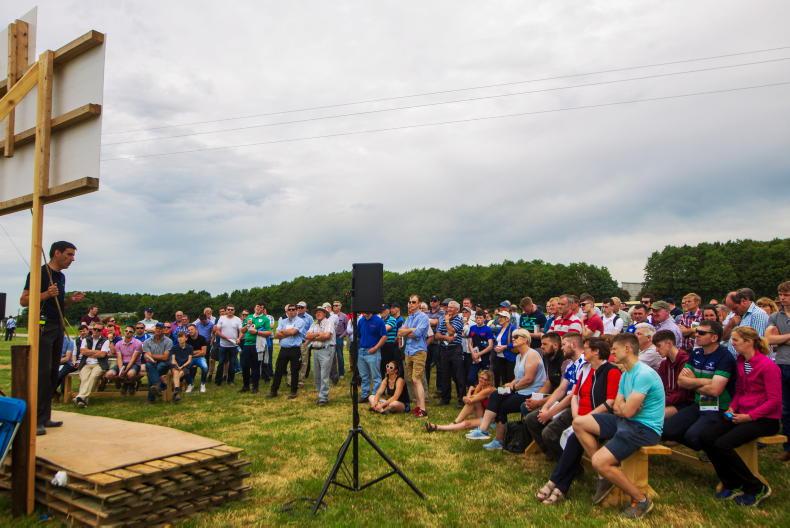

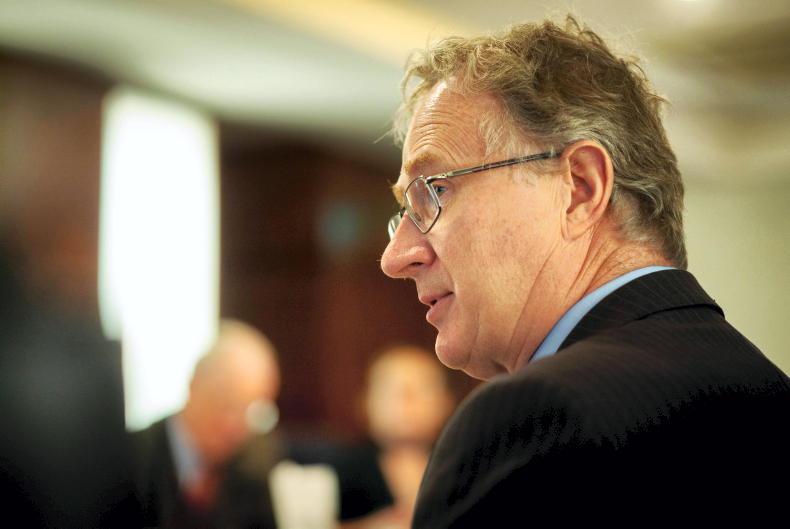

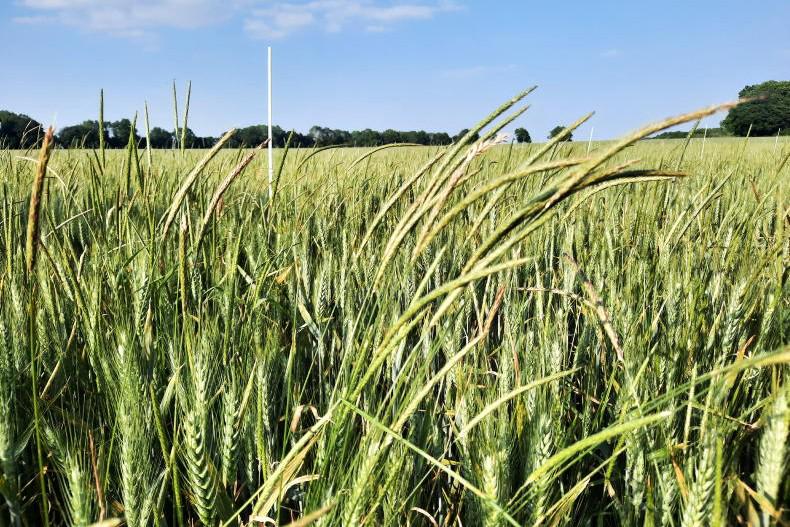
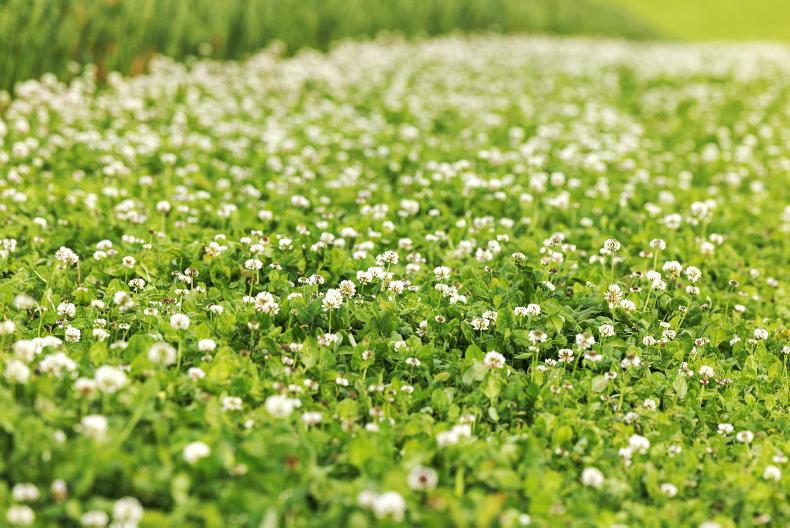
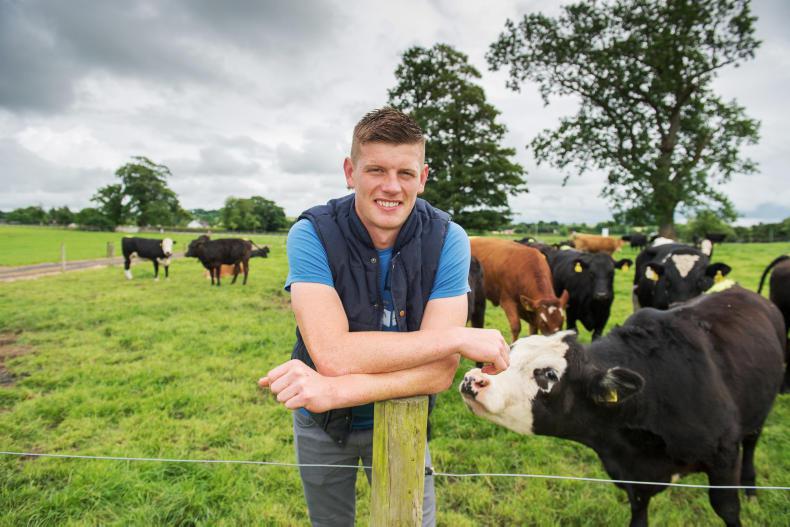
SHARING OPTIONS